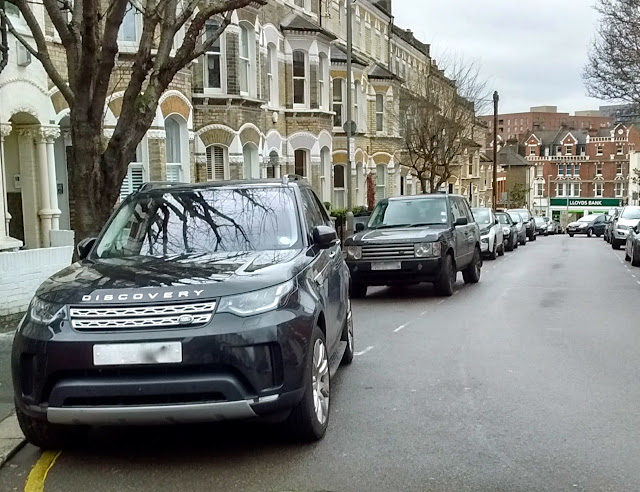It was only a small story on page 19 of last Tuesday's Evening Standard - but it broke all records for provoking anger, disbelief and dismay in this easily-wound-up reader.
Just look at the headline: "Chelsea tractors plough on in capital despite launch of Ulez".
Results from a survey by AA Financial Services, "released exclusively to the Evening Standard", revealed that 31 per cent of Londoners want their next car to be a a 4 x 4 or SUV.
This compares to 24 per cent of the rest of the population.
Can this possibly be true? Are Londoners that stupid?
Yes, it seems they - we - are.
Londoners were found to be the least likely to intend to buy a smaller, cheaper, environmentally cleaner car, anywhere in the UK.
Another question in the survey asked whether people believed that having a flash car made them "look good". A horrifying 13 per cent said "yes".
Presumably these are the ruddy-faced chumps driving their open-top Range Rover Evoques down my 20mph max street at around three times that speed, designer shades dangling from the placket of their Ralph Lauren polo shirts (collars up, of course).
Can this possibly be true? Are Londoners that stupid?
Yes, it seems they - we - are.
Londoners were found to be the least likely to intend to buy a smaller, cheaper, environmentally cleaner car, anywhere in the UK.
Another question in the survey asked whether people believed that having a flash car made them "look good". A horrifying 13 per cent said "yes".
Presumably these are the ruddy-faced chumps driving their open-top Range Rover Evoques down my 20mph max street at around three times that speed, designer shades dangling from the placket of their Ralph Lauren polo shirts (collars up, of course).
So we actually want our congested streets to be even more crowded, even more difficult to negotiate thanks to the arrival of even more of these obscenely inflated four-wheel fatties, do we? Yes we do.
Of course the latest and most expensive of these vehicles have more efficient engines, and are actually cleaner than cheap old bangers. Maybe they even meet the emission targets of Ulez, and thus escape the charge - what a terrible irony that would be.
But it's not just the air pollution that bothers me. It's the moving, aggressive, self-satisfied blot on the landscape that these vehicles represent: almost all of them are repulsive to look at. They are so huge you cannot ignore them. They have the stupid grinning fat faces of boozed up louts. Still, at least the bull-bars have gone.
We are Londoners. We are intent on self-destruction. It's not just Claphamites who live in Wankerville. It's the whole stinking lot of us living within the suitably vile perimeter of the M25.
Another recent piece of news reveals that it's not only London's car owners who are fouling up the city. Tfl has reported a massive increase in the numbers of people soiling tube carriages and buses. Guess which tube line is the filthiest.
SO, nothing new really. Who was it who called London the "Great Wen"?
Of course the latest and most expensive of these vehicles have more efficient engines, and are actually cleaner than cheap old bangers. Maybe they even meet the emission targets of Ulez, and thus escape the charge - what a terrible irony that would be.
But it's not just the air pollution that bothers me. It's the moving, aggressive, self-satisfied blot on the landscape that these vehicles represent: almost all of them are repulsive to look at. They are so huge you cannot ignore them. They have the stupid grinning fat faces of boozed up louts. Still, at least the bull-bars have gone.
We are Londoners. We are intent on self-destruction. It's not just Claphamites who live in Wankerville. It's the whole stinking lot of us living within the suitably vile perimeter of the M25.
Another recent piece of news reveals that it's not only London's car owners who are fouling up the city. Tfl has reported a massive increase in the numbers of people soiling tube carriages and buses. Guess which tube line is the filthiest.
SO, nothing new really. Who was it who called London the "Great Wen"?




